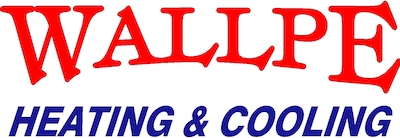
If you’re unsure whether your Greensburg home has bad indoor air quality (IAQ), it possibly does.
We are indoors a lot. As a matter of fact, we’re inside up to 90% of the time, according to the U.S. Environmental Protection Agency. And the air inside houses could be 2–5 times more polluted than outdoors, which can create long-term health issues.
Most Common Sources of Poor IAQ
We’ve made a list of the most ordinary origins of poor IAQ, the problems they make and how you can take care of these indoor air pollutants. If you’re concerned about the air inside your home, we suggest chatting with a expert like Wallpe Heating & Cooling about which options are a good fit for your house.
Volatile Organic Compounds
Volatile organic compounds, or VOCs, are vapors emitted from common household products.
They’re found in paint and stains along with:
- Furniture
- Carpet
- Building materials
- Cleaning products
- Cosmetics
- Air fresheners
- Candles
When these vapors accumulate indoors, they might irritate your eyes, nose and throat. They may also lead to headaches and nausea. Regardless of whether your home is in a rural or industrial location, an EPA study found indoor levels of these pollutants can be 2–5 times greater than the air outdoors.
Always follow the manufacturer’s directions when using paint or cleaning supplies. Opening a window can help chemicals disperse faster.
Air purification systems can also help. This unit partners with your heating and cooling unit to freshen indoor air. When seeking one, ensure it’s specifically designed to eradicate VOCs.
Dust and Pet Dander
Dust and pet dander can aggravate health problems like asthma and allergies, especially when it continually gets recirculated by your house’s comfort equipment. While you can vacuum more routinely and get an improved air filter, an air filtration system might be a better match.
This solution hooks to your heating and cooling equipment to provide powerful filtration. Some models offer hospital-level filtration for eliminating particles and bioaerosols.
Lasting Odors
Newer residences are tightly sealed to boost energy efficiency. While this is good for your energy bill, it’s not very good for your IAQ.
Musty odors can stay around for a greater amount of time because your home is pulling in reduced fresh air. Since keeping your windows open all year-round isn’t a possibility, here are two ways you can make your indoor air smell cleaner.
An air purification system is placed in your ducts to neutralize odors before they are redistributed. Search for one with a carbon filter and the capability to eliminate damaging VOCs. This equipment can also help keep your loved ones healthy by getting rid of most bacteria and common allergy triggers like pollen and mold spores.
A ventilation system takes out stale indoor air and substitutes it with clean outdoor air. There are two kinds of units (heat recovery and energy recovery), so ask our professionals for more info on which type is best for your residence.
Unsteady Humidity
It’s essential your house’s humidity stays even. Air that’s too moist can cause mold, while dry air can lead to respiratory troubles.
Our technicians suggest 40–50% for ideal comfort. To keep yours steady, think about getting a whole-home humidifier or whole-home dehumidifier with your comfort equipment.
In place of having to drag a humidifier from room to room, this equipment delivers balanced humidity across your house.
Carbon Monoxide
Carbon monoxide is colorless gas you can’t smell. It’s caused by insufficient combustion in fuel-burning equipment, like gas heating systems, water heaters or fireplaces.
It creates a severe health risk. In little levels, it can cause flu-like ailments like headaches and nausea. It could be lethal in large amounts.
We recommend yearly furnace maintenance to ensure your unit is running like it should. This job allows our professionals to pinpoint troubles before they begin, including malfunctions that can create carbon monoxide leaks.
The best approach to keep your home free of carbon monoxide is to install detectors. These alarms need to be on every floor close to bedrooms and living spaces.
Better Your Home’s Air Quality with the Wallpe Heating & Cooling Professionals
Know that your residence has poor air quality but not sure how to improve it? Or unsure which solution is right for you? Give our kind HVAC professionals a call at 812-663-7252 or contact us online now. With free estimates and pro service, we’ll help you choose the best equipment for your family and budget.
